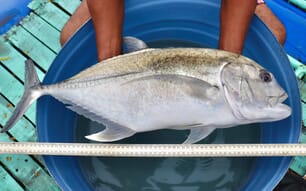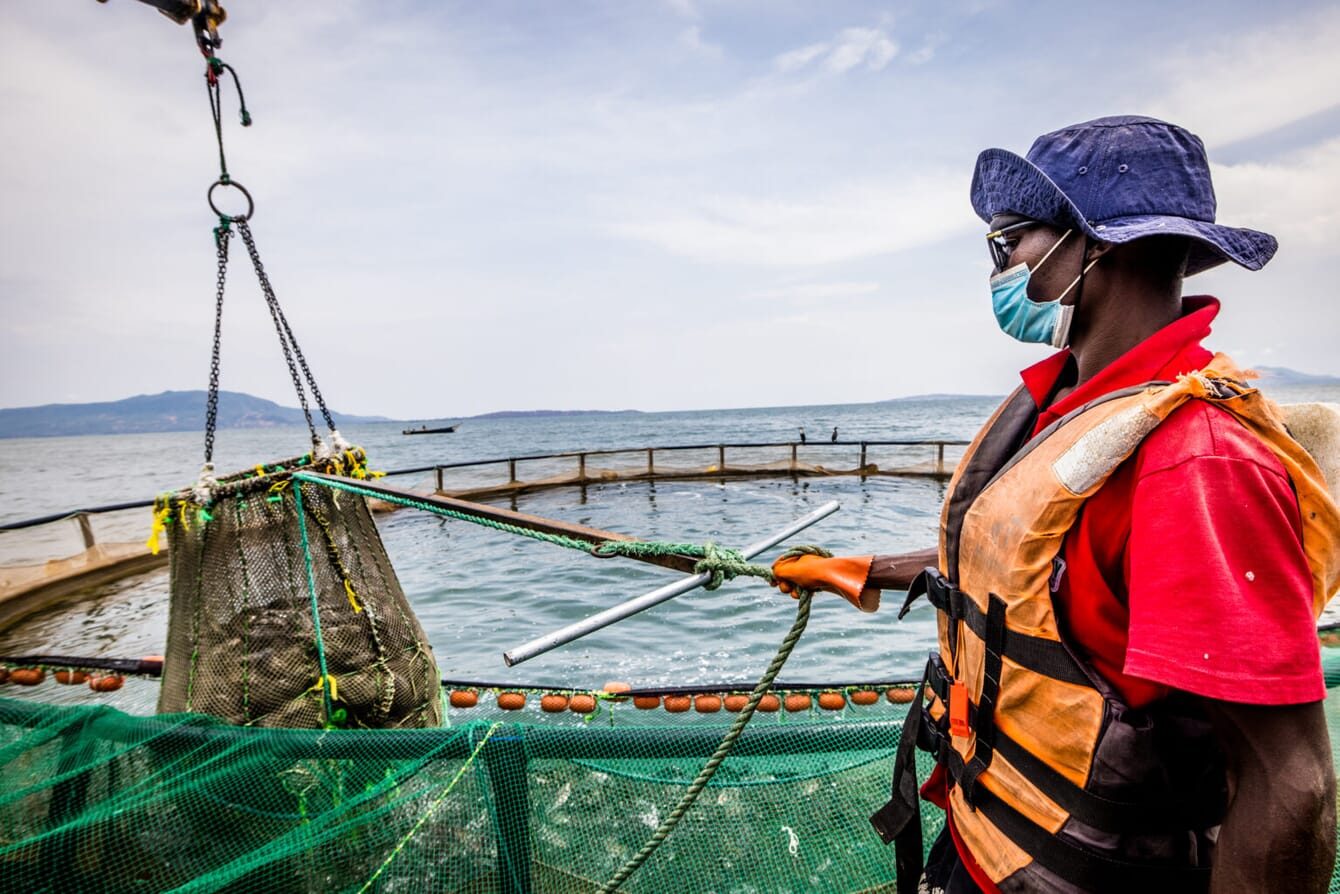
Victory Farms has been expanding its reach and farm outputs © Victory Farms
Given the company plans to expand in Kenya and Rwanda, he outlines some of the key challenges they are working to address, starting with recruiting and developing the most capable workforce possible.
“We’re lucky that our company can attract capital, even in a difficult environment, as there’s a lot of interest in what we do, but the key challenge will be talent,” says Rehmann.
He notes that they have had some success, not least through starting a college training programme early on in their time in Kenya, which they aim to replicate in Rwanda. However, especially given the company’s growth rate and plan to expand in multiple locations, he is concerned that they will struggle to find talented people in time to oversee this evolution.
“The quality of education here is great for what we need, but the problem is that graduates have zero practical experience and there are almost no employers who offer them practical agricultural experience. If you want experienced hires it’s a very thin talent pool. We might have a Stanford MBA to run our operations in Rwanda, and he’s phenomenal, but it’s not easy to attract people of that calibre to pick up these difficult roles. And once we have people like him in place we need to train the next generation – and that needs to be East Africans, who are the vast majority of our talent pipeline,” Rehmann explains.
One possible avenue is already under discussion – via a partnership offering students from Kenya’s top two agricultural university placements at Victory. But there is another possible solution that Rehmann is very keen on discussing with fish farming companies in Europe.
“I’d like to develop some form of non-competitive talent sharing arrangement with large salmon or sea bass or sea bream players who felt mission-aligned. The opportunity to create a talent exchange where they put good people in our company and we put good people in theirs would be transformational,” he reflects.
Policy is another area that’s been a source of frustration for Rehmann – not least the differences in polices between the countries that surround Lake Victoria.
“In my view the region could compete head-on with Chinese tilapia on cost – it might take another decade but our feed conversion rates are so competitive because of the advantages of Lake Victoria and Lake Kivu and the other very large East African Lakes. But we will need these governments to co-operate instead of fight,” he explains.
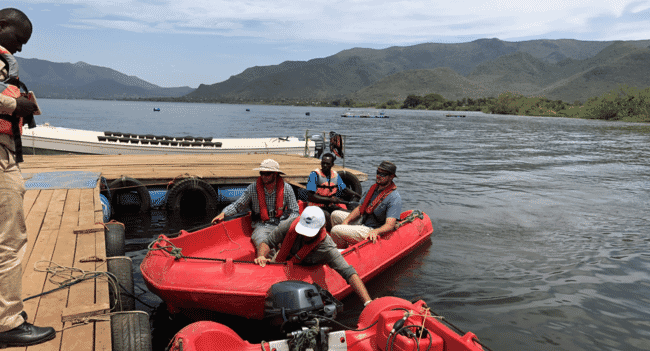
Rehmann hopes to develop a non-competitive talent sharing arrangement with other aquaculture firms © Victory Farms
As a result, he is working with intergovernmental agencies to help to address this.
“I think it’s possible. I’ve recently had conversations with folks at agencies like the African Development Bank and IFC and DFC – I believe there is now a chorus of actors who are serious about regional policy harmonisation, who we’re engaged with,” says Rehmann.
And circumstances are making their arguments for promoting aquaculture harder to ignore.
“The country’s wild catch is down 90 percent, it’s a food crisis. And Kenya is now importing most of its tilapia from China, there’s real health and safety concerns on non-export quality fish coming in – the government knows that but didn’t have any real policy options without domestic production. Now there’s domestic production it gives them better options,” he says.
However, in the meantime, Victory is bound by a variety of – often arcane – rules.
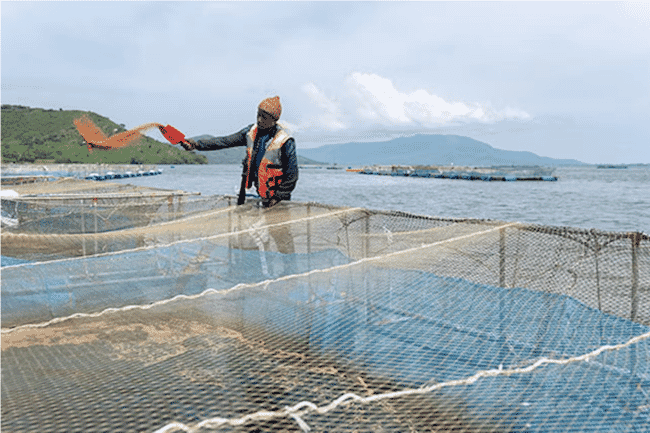
Manufacturing feed in Kenya can be challenging and comes with outdated rules © Victory Farms
“In Kenya we’re not allowed to add calcium to our feeds, based on formulation rules from 1975,” Rehmann explains.
Other concerns relate to whether, for example, the company’s feed mill will be able to import Tanzanian sunflower oil and sell feed back to Tanzania.
But on the bright side the Kenyan government’s decision in October to allow GM soy in feeds – which, according to Rehmann “has taken years of lobbying and work” – will reduce the cost of aquafeeds in Kenya by around 6 percent.
A recipe for success
Victory has been one of African aquaculture’s success stories, while many other farms have failed, and Rehmann believes that their data-driven approach to their operations has been vital in achieving this.
Creating a culture premised by performance – bonuses are paid according to the success of their team, as measured by accurate data has, Rehmann says “created an incredibly healthy competitive environment.”
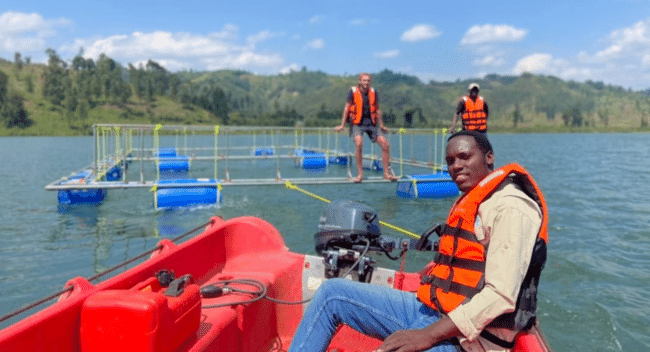
Rehmann believes that much of the success of Victory Farms stems from data-driven approach to farm operations © Victory Farms
The main software they use on the farm to collect this data is AquaManager, which was developed for the bass and bream sector. But they have also been investigation novel techniques, such as taking and analysing aerial photos of the ponds and the cages daily, which has led to some compelling results.
“It’s created a lot of real-time information which allows us to be more proactive and rapidly reactive rather than getting a weekly report and already being two weeks behind,” notes Rehmann.
“We have a hypothesis that pond colour is predictive of pond performance – I’m now totally convinced that, with photos and data, we can predict the performance of the pond the next week. We rolled this out at the beginning of the year and since then we have had 30 percent higher fecundity in our breeding ponds and have reduced the standard deviation from 12 to 3 percent per cycle, which is a game-changer in terms of the predictability of the ponds. Now I can predict the volume of eggs we will have next month,” he explains.
This is vital, he notes, due the vital importance of logistics in a business that each day requires 40 tonnes of feed (which has been sourced from five different countries around the world) to be distributed into 400 different cages as well as harvesting 25 tonnes of fish and distributing them across Kenya with a very limited cold chain.
“This is a logistics business, it just happens to be fish. So, once you can predict the first stage of your funnel, which is egg production, you can then plan resources across the rest of the business much better. Today egg production is assessed by humans looking at colour charts, but it’s perfectly set up for machine learning,” he adds.
And the potential impact of this only going to increase as and when the company is able to embark on the next phase of its evolution.
“The old school way of doing tilapia needs to be disrupted. There are lots of fancy and advanced systems in salmon, but we can’t cut and paste those technologies for tilapia, we need to have our own innovation programme and hopefully that’s what Victory is doing,” Rehmann reflects.
Victory’s rise to become one of Africa’s top tilapia producers has been mirrored by the rise of other industrial-scale producers in other countries. While Rehmann admires the success of these others – and sees space for plenty of companies to succeed – he believes Victory has done some things differently.
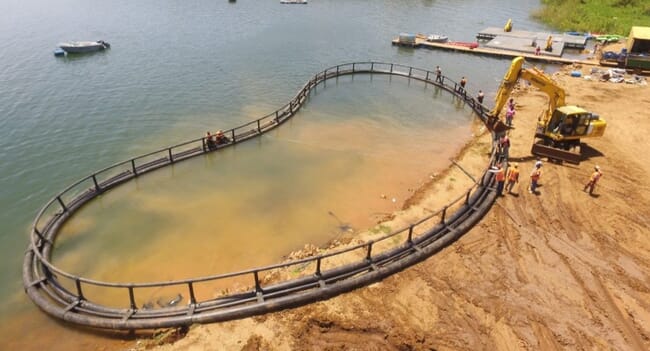
It has been forecast that sub-Saharan Africa will need to reach 5 million tonnes of aquaculture production by 2030 and 10.6 million tonnes by 2050 © Victory Farms
“But, what sets us apart, is that we’ve embarked on a salmon sector inspired professionalisation plan. In 10 years we want to be as professional as salmon is – which means that we’re a business not a farm,” he explains.
Nevertheless, at the same time, Rehmann very much welcomes the success of the other leading producers.
“We’re all on the same team – there are several million tonnes of demand in Africa for tilapia today, it’s the most rapidly growing continent in the world and has the highest increase in disposal income and therefore increases in animal protein consumption are happening,” he reflects.
Indeed, it has been forecast that sub-Saharan Africa will need to reach 5 million tonnes of aquaculture production by 2030 and 10.6 million tonnes by 2050 – figures which would require the region’s aquaculture output to grow by much more than the 11 percent a year which it has grown at since the turn of the century.
“Victory is going to grow at 40 percent in Kenya next year,” Rehmann reflects, and he believes that there’s scope for producers across the continent to outpace the 11 percent average currently being achieved.
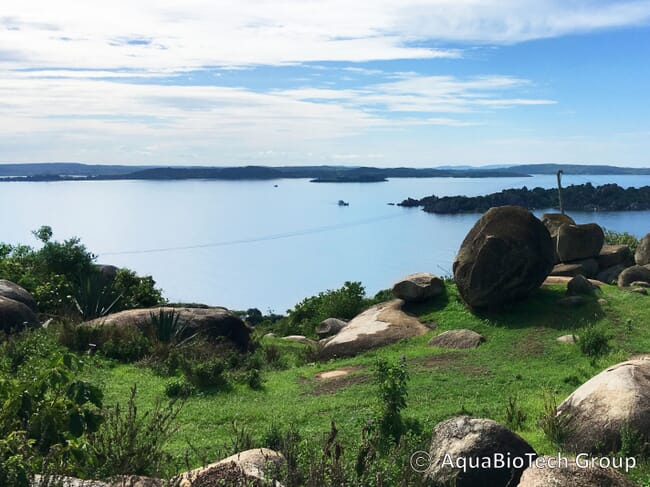
Though the Lake Victoria region has huge aquaculture potential, firms need to ensure that its development is not carried out recklessly © AquaBioTech Group
Environmental concerns
While such a growth rate could have huge positives – not least for food security – Rehmann does concede that it’s vital to ensure that this expansion is not done recklessly, in order to ensure that biosecurity is maintained and the ecology of the continents great lakes is not sacrificed.
“It’s not a major concern today, but I definitely think it will be in the next five to ten years. It’s really important that governments act together to make sure operators who break the rules, or act without permits or licences are stopped, removed or penalised to avoid the tragedy of the commons. We’ve seen a couple of operators appear in the last 18 months who are not licenced and permitted,” Rehmann reflects.
“The government’s overarching goal is to provide jobs and food security, but if we’re not going to have a boom and a bust it’s important for governments’ policies to be clear and enforceable,” he adds.
Further opportunities in African aquaculture
Rehmann came to aquaculture after five years as an investment banker and he sees his career path as having an appeal to others who share a wish to combine making sound investments with a desire for having a positive impact.
“I think that if you’re passionate about food security, climate change and inequality but are also not saints – we’re here to run and business and make money – there are plenty of opportunities to build something meaningful in African aquaculture. That’s our tagline and so far it’s brought us a lot of success – we’ve managed to retain almost everyone we’ve hired,” he reflects.
While Rehmann has been successful in bringing investment into the company, he is keen to see more investors consider the opportunities offered by African aquaculture in general, despite the perceived risks.
“The vast majority of aquaculture businesses in Africa fail. But how many mobile money – which is the hot sector here, it accounts for a third of our economy – startups fail? I’m not sure if it’s a different percentage. In my view the aquaculture value chain – and I’d look at it as a value chain not as placing discrete bets – is poised for such substantial growth that there are incredible investment opportunities up and down the value chain,” he explains.
“The one piece of advice I would give is spend time to get to know the sector and get to know the geographies where you’re playing. Africa includes 54 countries and there’s definitely not a one-size-fits-all approach,” he concludes.



